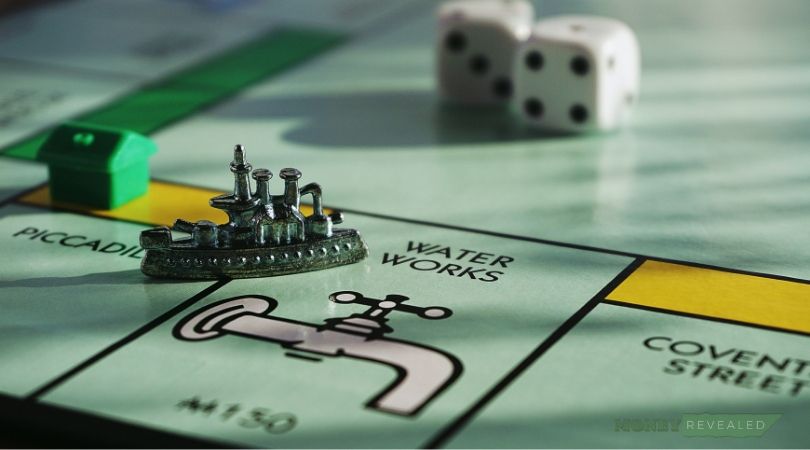As an Amazon Associate, Revealed Films earns from qualifying purchases.
How do children learn about money? The answer is, most don’t. Unfortunately, many people grow up without ever having a dedicated education about finances. That leads to a lifetime of missing out on financial opportunities and losing money in bank fees, taxes, and missed opportunities. It also leads to children growing up believing that they have no other choice but to follow the path that most people follow: Go to school, accrue some college debt, get a job, work hard and save like crazy, and then retire.
But even worse than the lost potential in wealth is the lost potential in human fulfillment.
Children are natural entrepreneurs, who love to use their imagination to solve problems in new and unusual ways. They are also voracious learners, absorbing information at a much faster rate than adults. And, what you learn as a child becomes a part of your “norm.” That means that being brought up with discussions, learning opportunities, and demonstrations about money will lead to adults who are well-informed, comfortable with the topic, and not afraid of marching to a different drummer.

How will your children learn about money, if they’re not going to be taught at school? Don’t worry, they’ve got the perfect teacher…
You!
You’re more than qualified to teach your child your values, methods, and philosophy of money. And, you can have a lot of fun together doing it! Using hands-on, real-life examples makes learning fun…and gives you something to work together on as your child grows.
Here are some ideas to get you going…
Check out Robert Kiyosaki’s books for kids, Rich Dad’s Rich Kid, Smart Kid (in both paperback and audiobook). This book is a parent’s guide to raising happy, fulfilled, and wealthy kids. It covers topics like the difference between good and bad debt, how to find your child’s inner genius, and even suggestions for financial field trips that you can do together! While you read, your child can enjoy Escape the Rat Race…an entertaining graphic novel that encourages entrepreneurship. For teens, try Rich Dad, Poor Dad for Teens. This pocket-sized book is geared toward your teen, but you can read it together and discuss each chapter as you go. It’s full of fun sidebars, exciting quizzes, and sage advice about navigating making money work for you.

Play a game together! There are many games that teach financial concepts as well as basic money skills, and kids learn well through games. Payday is a classic that simulates monthly cash flow, as players are paid and then must manage expenses. Monopoly is an old standby that teaches real estate investing, and Catan is an excellent game that teaches players about exchange and trade. Rober Kiyosaki’s Rich Dad group has also produced a game called Cash Flow 101, which can be played as a board game or as an app. Finally, a set of play money like this one can be the spark that ignites hours of pretend play, from “pet shop” using your child’s stuffed animal collection to building a lego real estate empire together.
Teach your child or teen about investing…by investing. Check out The Motley Fool’s stock suggestions, and decide together which stocks you like. Then, watch them rise (and fall) and discuss the reasons behind the stock’s movement. If you don’t want to invest directly, you can demonstrate by “investing” a percentage of the real stock’s price (for example, a stock that sells for $56.00 a share becomes $5.60) and playing out “what if” scenarios with small amounts of money at home.

Help your child go into business. Everyone remembers setting up a lemonade stand in the summer, mowing lawns, or babysitting for extra cash. Use these rites of passage as a learning opportunity by helping your child devise a business plan, set prices based on a cost-to-income ratio, or research going rates for services. Help your child analyze successes and failures, and adjust accordingly. You both might be surprised by how far a kid-run business can go!
Ready to get started? Take a moment to develop a plan of action, and then dive right in. The time spent today educating your child about money will pay off exponentially as your child grows into a savvy financial planner who is not afraid to follow their dreams!


I came across money revealed to learn more myself so I could teach my kids! I’m so grateful for this blog.
Madeleine, so glad that you found us! It’s a great thing to be teaching your kids about money, it gives them such a leg-up in life. Welcome!
Good infomation!